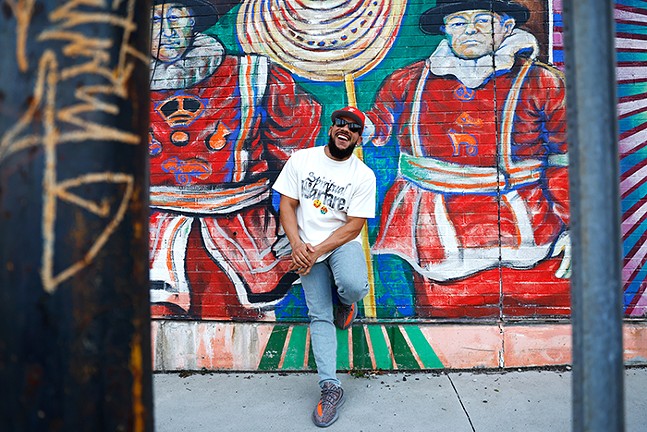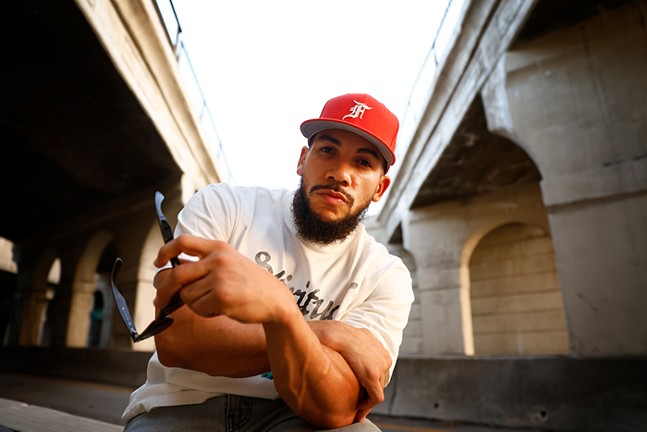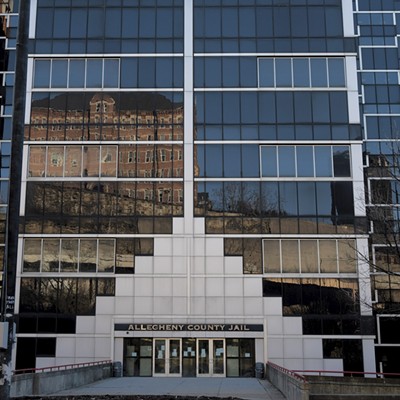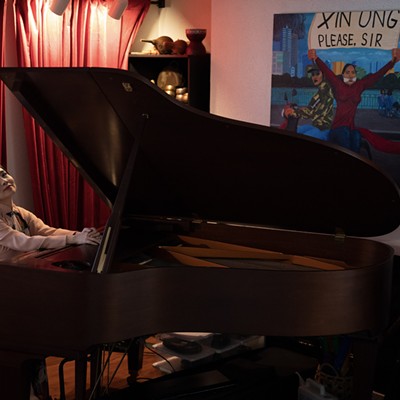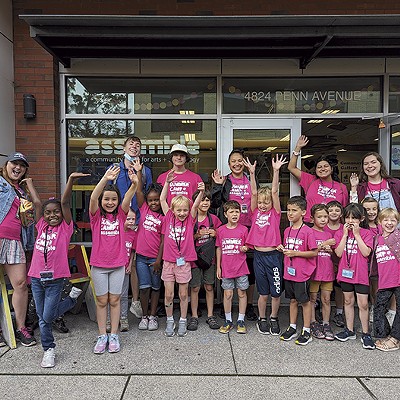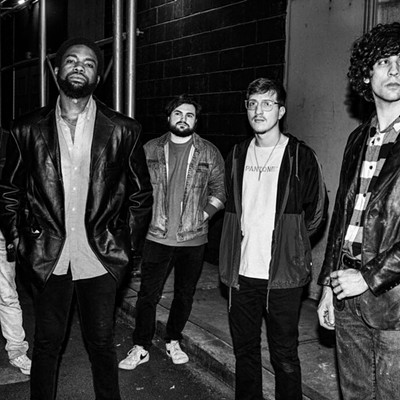Saïd, aka Farooq Al-Said, is adamant that he would still be in jail today if he didn’t have God on his side.
The rapper, activist, and director of operations at 1Hood Media was arrested when he was 17 for an altercation that, if sentenced, would have meant 28 years of incarceration. A Toronto native, Saïd was sent to an immigration facility and celebrated his 18th birthday in solitary confinement.
“Going through therapy, I realized how much that changed my life,” he says. “The last two years, specifically the last calendar year, I’ve been the worst version of myself that I’ve ever been. There was a lot of trauma that I didn’t realize that I was finally dealing with … This album was so important to me because I found unhealthy ways to express it.”
That album, Revolutionary But Gorgeous (RBG), released this year on his birthday, Sept. 16, via 1Hood Media, unintentionally became a healthy outlet for Saïd and his emotions. The 10-track project is a follow-up to his 2020 LP The Kid With The Golden Arms, and uses old-school hip-hop elements and free-flowing, honest rhymes to share Saïd’s experiences with depression, social justice, incarceration, and Black resilience.
“All the content, everything on the album, is everything I’ve struggled with,” says Saïd. “To me, it was like going back in time and being completely honest with a lot of things I was involved with.”
Going Back In Time
RBG exists, and Saïd is not currently behind bars for his teenage altercation, because his case ended in a mistrial.
“The police ended up tampering with my evidence, and I walked,” explains Saïd. “God kept giving me these alley-oops. Right after that, my best friend got shot in the head. God was like, ‘See what I mean? I’m giving you these opportunities. If you don’t want to listen, I gave you a sign on what's about to happen to you.’ That kind of forced me into the music industry because it was either that or the streets.”
Saïd was always drawn to, and had ties with, the music world. One of the ways he learned English — Saïd’s first language is Arabic — was by singing or rapping along to songs. He recalls watching Paula Abdul on TV and greatly admiring Prince. The first rap he learned was Eric B. & Rakim’s “Microphone Fiend.”
In eighth grade, Saïd’s English teacher overheard him freestyling with friends at lunch.
“She said, ‘You use a lot of colorful language in your rap,’” explains Saïd. “I said, ‘I know, it’s rap.’ She was, like, ‘I love it, I love how you express yourself.’”
And so Saïd’s teacher made a deal with the budding musician. She would provide him with vocabulary words at the beginning of each week, and he would be allowed to rap in front of the class on Friday, but he had to use all the new vocab words.
“Hip hop has given me every opportunity I have right now, more or less. It's my therapy, my decompression, my joy, my sorrow,” says Saïd. “The things that I experienced and found in the spectrum of hip hop are integral to me.”
After beating his charges and being released from jail, Saïd went straight into the music industry. Within two years, he had a record deal with Universal Music and Godsendant Music Group under the moniker Ayatollah Jaxx and writing credits on Billboard charting tracks. This was a linear career trajectory dating back to before Saïd’s arrest. He was making waves and connections in the music world at a young age, but, as Saïd says: “The younger me had a problem for every solution.”
“There's that overlap between the streets and hip hop. I got introduced to the music industry because I shook the right hands,” he says. “When I was 15, I had a record that I ghostwrote for this R&B group go to no. 23 on the Billboard charts. So [at that age], I had this idea that I was going to go into the music business, but I was super involved in the streets. But God kept giving me alley-oops to get out.”
Alley-oops
Since 2018, Saïd has been a member of the socially conscious local arts organization 1Hood Media, where he is now the director of operations. At 1Hood, Saïd does everything he can to build liberated communities through art and social justice.
“Those are two components that are part of my being,” he says.
After quitting rap completely in 2010 — he says he felt disenfranchised with the music industry — Saïd, the son of a former Black Panther father and a mother granted political asylum from Lebanon, set his sights on using hip hop to uplift, inspire, and educate youth, much like it did for him as a kid. He didn’t plan on making another album, but when Saïd started going through a heavy period in his life, hip hop, as it has proven to be time and time again throughout his life, was the strength he didn’t realize he needed.
“I started writing out all these feelings and had all these instrumentals from the guy who produced the album, Hobbes [Duendes], who also came out of 1Hood,” says Saïd. “[RBG] was a passion project, something that I wanted to get off my chest, and I just had this platform and artist medium to do it. I wouldn’t say I'm back in the music industry. This felt like a piece of work that needed to be shared with people.”
In 2019, Saïd lost his mother and his daughter shortly after that. Those deaths, compounded with unresolved past trauma, caused Saïd’s mental health to plummet.
“So many people in my life felt victim to this spiral that I was in,” he says. “That’s why the title is Revolutionary But Gorgeous, because revolution is never pretty, but liberation is. And if I can liberate myself from myself, then that’s revolutionary and gorgeous.”
Saïd made it a point to note that he doesn’t want his daughter’s death to be a selling point for the album. Instead, he talks about the experience because it happened, and because it impacted him.
“It gave me something to talk about in terms of what mental health looks like for Black men, specifically Black men in their 30s,” explains Saïd. “I really think this album is special because I give an aspect of Black male vulnerability that we haven’t really seen yet, and I’m not sacrificing anything for it.”
Revolutionary But Gorgeous brings up topics and discussions that aren’t happening, and Saïd wants people to listen to the album not because he thinks it’s great (although he certainly does) but because he believes it can help.
“The album is a conversation that Black people should be having,” he says. “It’s revolutionary but gorgeous.”
Saïd. smarturl.it/GorgeousRevolution

